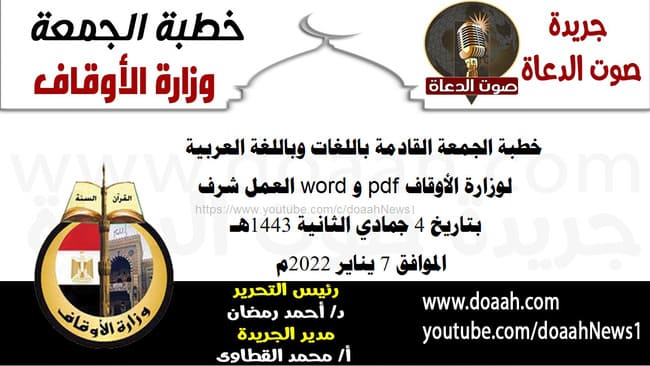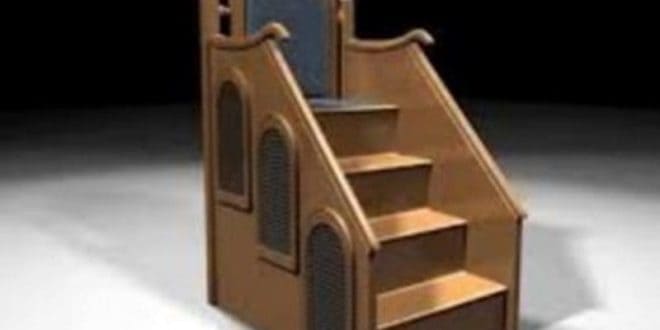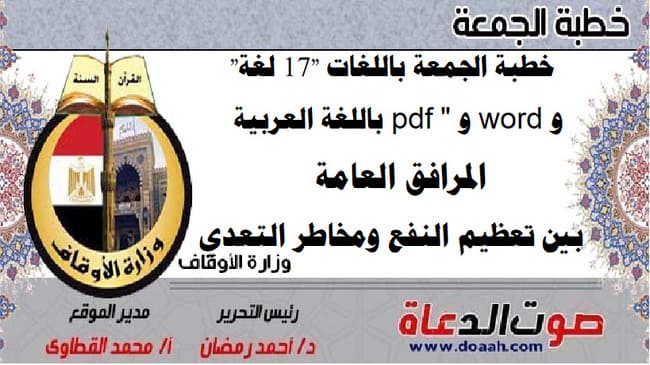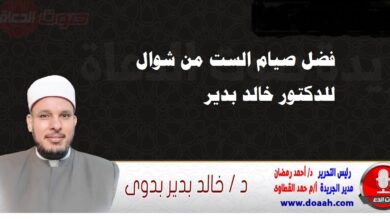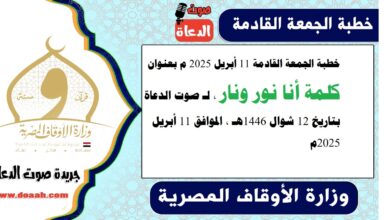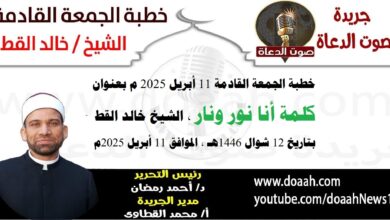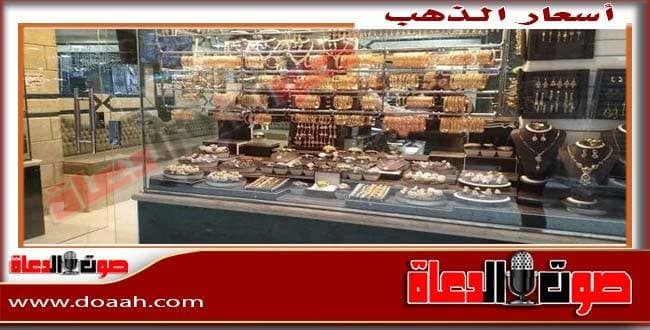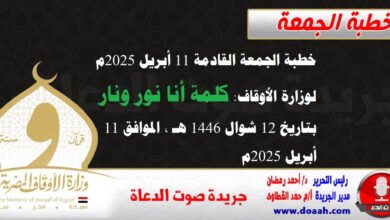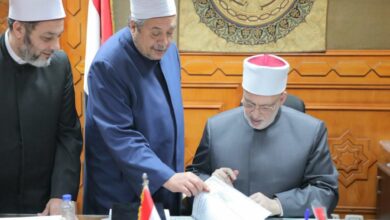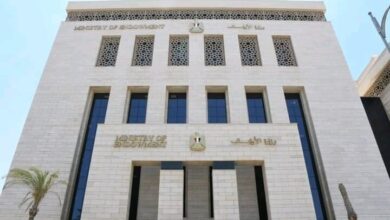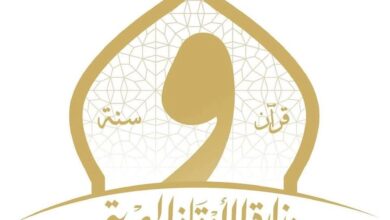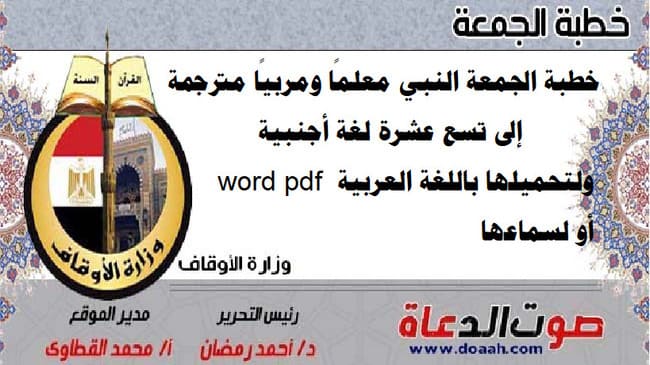
All praise is due to Allah; Allah is Great, Allah is Great, Allah is Great, Allah is the Greatest, Allah is the Greatest, Allah is the Greatest, Allah is the Greatest; Allah is altogether greater; and Praise be to Allah in abundance; and Glory be to Allah in the morning and at night; I bear witness that there is no god but Allah; I bear witness that Muhammad is His slave and Messenger; may Allah’s Peace and Blessings be upon him, his family, companions and whoever follows them to the Day of Judgment.
Muslim brothers,
The blessed Adha Day is a day of good, blessing, righteousness and benevolence. It is one of Allah’s Witnessed Days, since it is in these days have to do with one of the great pillars of Islam, that is, pilgrimage; it is a Day of sacrifice, giving, thanking and happiness with the Blessings of Allah, the Almighty, Who says, “Say, “In the bounty of Allah and in His mercy – in that let them rejoice; it is better than what they accumulate.” The Messenger of Allah (PBUH) also says, “The greatest day in Allah’s sight is the day of sacrifice and next the day of Al-Qarr (i.e. resting).” The day of Al-Qarr is the day that comes next to the day of sacrifice, because people rest in Mina city in this day after completing the works required in the Day of Sacrifice.
Whenever the blessed Al-Adha Eid comes, we remember the story of sacrifice and redemption- the story of Abraham and Ishmael (Allah’s Peace be upon them). The Wisdom of Allah, the Almighty, decrees that He would afflict His believing slaves with trails so that He would distinguish the bad from the good; He, Glorified is He, says, “And that Allah may purify the believers [through trials] and destroy the disbelievers.” Prophet Abraham and his son Ishmael were afflicted with great tribulation; Abraham (PBUH) saw a vision that he should slaughter his son “Ishmael” (PBUH); a fact about which Allah, the Almighty, says in the Qur‘an, “And when he reached with him [the age of] exertion, he said, “O my son, indeed I have seen in a dream that I [must] sacrifice you, so see what you think.” Out of the fact that the father wanted to share the considerable reward with his son through showing total submission to Allah, the Almighty, he told his son about what he saw “O my son, indeed I have seen in a dream that I [must] sacrifice you, so see what you think;” and Ishmael offered the most perfect example of submission and surrender, “He said, “O my father, do as you are commanded. You will find me, if Allah wills, of the steadfast.” That is to say that the father and the son have offered a wonderful example of sacrifice, total surrender and full submission to His, Glorified is He, Order.
The Divine Law decrees that affliction should be accompanied by ease, and that trials should be followed by relief, which is why the Blessings of Allah, the Almighty, consecutively sent down for the sake of the father and his son. Allah, Glorified is He, says, “And when they had both submitted and he put him down upon his forehead, (103) We called to him, “O Abraham, (104) You have fulfilled the vision.” Indeed, We thus reward the doers of good. (105) Indeed, this was the clear trial. (106) And We ransomed him with a great sacrifice.” These verses carry Divine Testimony for the trail as being sore and for the two noble Prophets as being righteous and instantly watching Allah. Then Allah, the Almighty, saved Ishmael with a great sacrifice, and answered the supplication of Abraham to be of good reputation, “And grant me a reputation of honor among later generations.”
In this context, we affirm that showing happiness with the Eid is an act of worship and obedience. In other words, it is the right of the Muslim to be glad with the Eid, since the signs of lawful happiness shall be clear in such days. Anas (May Allah be pleased with him) said, “When the Messenger of Allah (PBUH) came to Medina, the people had two days on which they engaged in games. He asked: What are these two days (what is the significance)? They said: We used to engage ourselves on them in the pre-Islamic period. The Messenger of Allah (PBUH) said: Allah has substituted for them something better than them, the day of sacrifice and the day of the breaking of the fast.”This happiness actually reflects the greatness of this religion and its tolerance, and how it fits the human nature. The day of Eid is a day of happiness and making all people happy. During the Eid days, Muslims should spend generously on their families, offspring and relatives in every lawful way, including food, drinking, clothes, costs, etc., which are all among the acts for which man gets reward. In this regard, Prophet Muhammad (PBUH) said, “You do not spend anything by which you desire the face of Allah Almighty but that you are rewarded for it, even what you place in your wife’s mouth.” As well, man should be keen on making all people around him happy, especially the poor, the needy and the orphans, so that none of them would be in need in this day.
Slaughtering the sacrificial animals has been legitimized to realize the noble humanitarian meanings, with the aim of spending generously on one’s family and maintaining solidarity among the members of the society. It is also a revival to the way of Prophet Abraham (PBUH) and the Sunnah of Prophet Muhammad (PBUH), with the aim of getting close to Him, Most High. It is further an act of worship whose doer will be greatly rewarded by Allah, and one of the Rites of Allah that should be glorified, “That [is so]. And whoever honors the Rites of Allah – indeed, it is from the piety of hearts.” Not only that, but it is also a good sacrifice whose ultimate objective is that to fulfill the piety of Allah, the Almighty, that urges people to do all good acts, keeps them away from all evil and leads them to obtain the content of Allah, Most High, “Their meat will not reach Allah, nor will their blood, but what reaches Him is piety from you. Thus have We subjected them to you that you may glorify Allah for that [to] which He has guided you; and give good tidings to the doers of good.”
In this regard, we emphatically stress that we shall translate the fact that offering a sacrificial animal is one of the signs of greatness and progress of Islam, so we should not slaughter the sacrificial animals at the entrances of building or houses, nor should we do that in streets, alleys, or in front mosques or hospitals, since all of these acts will result in health issues. Islam has prohibited harm, “There shall be neither harm nor reciprocating harm.” In addition, our religion orders us to cleanse roads and to keep any harm away from them, counting this as an act of belief. Prophet Muhammad (PBUH) said, “Belief has over seventy branches – or over sixty branches – the uppermost of which is the declaration: ‘None has the right to be worshipped but Allah’; and the least of which is the removal of harmful object from the road, and modesty is a branch of belief.”
Along with slaughtering, we also stress that the recommended act of offering a sacrifice is realized through the promissory notes of sacrifice that help distributing the shares to those who truly deserve them in dignity.
Second Sermon
All praise is due to Allah; Allah is altogether great; and Praise be to Allah in abundance; and Glory be to Allah in the morning and at night; all praise is due to Allah Alone; and may Allah’s Peace and Blessings be upon Prophet Muhammad, his family, companions and whoever follows his guidance to the Day of Judgment.
Muslim brothers,
In the Eid day, we should be keen on strengthening social bonds and relations, with strengthening the ties of kinship as the most important of these relations ever, since it is regarded one of the greatest duties and best acts of obedience as it brings love among relatives and harmonizes people’s hearts. The fruits of maintaining the ties of kinship are recorded in the Prophetic Hadith, “Anyone who wants to have his provision expanded and his term of life prolonged should maintain ties of kinship.” In truth, maintaining ties of kinship requires pardoning and forgiveness and to meet evil deeds with good ones, which is why Prophet Muhammad (PBUH) said, “The person who perfectly maintains the ties of kinship is not the one who recompenses the good done to him by his relatives, but the one who maintains ties of kinship is the one who, when his relatives cut him off, maintains ties of kinship.”
It is also recommended to promote social relations among all mankind through visiting each other, shaking hands, exchanging greetings, knowing each other, and spreading affection among all mankind, which is regarded as one the most important acts of worship that brings forth the Love of Allah, the Almighyt. Abu Hurayrah (May Allah be pleased with him) said that the Prophet (PBUH) said, “A man set out to visit a brother (in Faith) in another town and Allah sent an angel on his way. When the man met the angel, the latter asked him, “Where do you intend to go?” He said, “I intend to visit my brother in this town.” The angel said, “Have you done any favour to him?” He said, “No, I have no desire except to visit him because I love him for the sake of Allah, the Exalted, and Glorious.” Thereupon the angel said, “I am a messenger to you from Allah (to inform you) that Allah loves you as you love him (for His sake)”
In this day, the Prophet (PBUH) used to walk to the place where he would offer his prayer. ‘Ali (Allah be pleased with him) said, “It is recommended to walk to the place of prayer in the Eid. In addition, he (PBUH) used to walk in one way and go back from another way; Jabir Ibn ‘Abd Allah, “When it is the day of Eid, the Prophet (PBUH) used to go in one way and to go back in a different one,” so that they both would testify for him on the Day of Resurrection, and so that a large number of people would meet in this day and thereby exchanges greetings. Jubair Ibn Nufair (Allah be pleased with him) narrated that when the companions of the Prophet (PBUH) met on the day of Eid, they used to say to each other, “May Allah accept from us and from you.”
O Allah! Make it a blessed Eid full of security, blessings and welfare for Egypt and the entire world!


